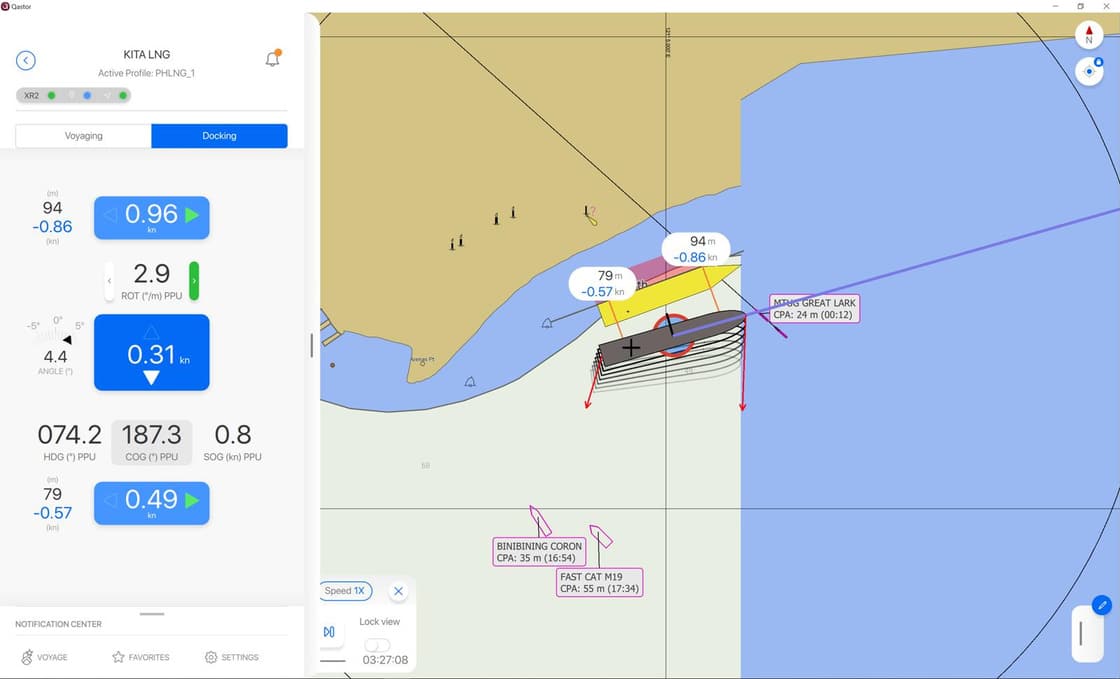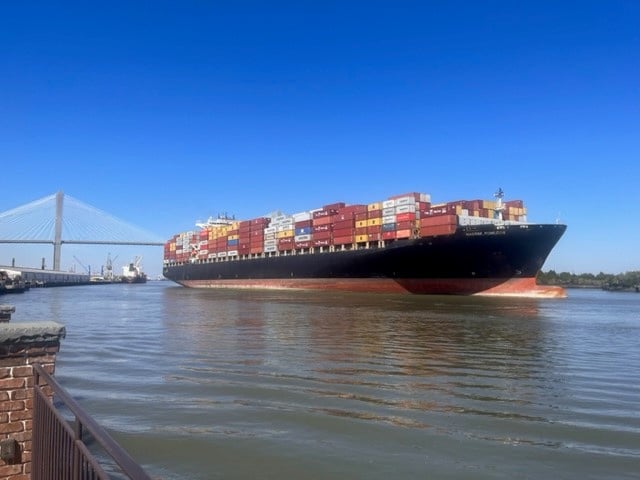1. Introduction
Navigating large vessels through intricate maritime routes is a complex and highly responsible task. The safety of the vessel, its cargo, the crew, and the marine environment all depend on the expertise of marine pilots. They serve as the vanguards of maritime safety, utilizing their extensive knowledge and experience to ensure that ships can navigate safely through challenging waters, congested ports, and complex channels. One of the pivotal tools in the arsenal of marine pilots is the Portable Pilotage Unit (PPU). This white paper delves into the significance of PPUs in modern marine pilotage and their indispensable role in enhancing maritime safety.
2.What is a Portable Pilotage Unit?
Definition: A Portable Pilotage Unit (PPU) is a state-of-the-art electronic navigation device designed specifically to assist marine pilots in making well-informed decisions while guiding large vessels through challenging waters. PPUs are not mere GPS systems; they are sophisticated electronic systems that combine real-time data from various sources to offer a comprehensive picture of the vessel’s surroundings, ensuring safe navigation.
Components and Features:
- GPS Receivers: PPUs are equipped with high-precision GPS receivers that provide accurate positioning data.
- AIS Transceivers: Automatic Identification System (AIS) transceivers allow for the identification and tracking of nearby vessels, greatly enhancing situational awareness.
- Radar Integration: Radar integration provides a real-time view of the vessel’s surroundings, including other vessels, landmasses, and obstacles.
- Electronic Nautical Charts (ENC): ENC data ensures that marine pilots have access to up-to-date charts for accurate navigation.
- Advanced Software: The software within PPUs processes data from all these sources and presents it in a user-friendly format that aids decision-making.
Functionality: PPUs offer a multitude of functionalities, including real-time vessel tracking, hazard identification, collision avoidance, communication tools, and environmental monitoring. These features collectively empower marine pilots to navigate vessels safely and efficiently.
3.The Importance of PPUs in Marine Pilotage
-
- Enhancing Situational Awareness: Situational awareness is crucial in marine pilotage. PPUs provide marine pilots with real-time information about the vessel’s position, speed, heading, and the positions of other nearby vessels. By having access to accurate and up-to-date information, pilots can make timely adjustments to avoid collisions, maintain safe distances, and respond effectively to dynamic situations, such as changing weather conditions and traffic patterns.
- Navigational Aid in Complex Waters: Many waterways around the world present unique challenges, including narrow channels, shallow waters, submerged hazards, and strong currents. PPUs empower marine pilots with precise data on depth contours, underwater obstacles, and currents, allowing them to navigate these intricate passages with confidence. These tools are invaluable when navigating through tight spaces and restricted waterways.
- Mitigating Human Errors: Even the most experienced marine pilots can be susceptible to human errors. PPUs act as reliable back-up systems, reducing the likelihood of navigational mistakes. Additionally, these devices can issue alerts for potential hazards, grounding risks, and deviations from safe navigational practices, ensuring the crew remains vigilant.
- Improved Communication: PPUs often have communication capabilities, enabling marine pilots to collaborate with bridge teams, port authorities, and other vessels in real-time. This enhanced communication fosters seamless coordination during critical maneuvers, promoting overall maritime safety. Clear and instant communication is especially critical in congested ports and waterways.
- Environmental Protection: Modern PPUs are equipped with features that help marine pilots assess potential environmental risks and avoid ecologically sensitive areas. By minimizing the impact on marine ecosystems, these units contribute to sustainable shipping practices and marine conservation efforts. Marine pilots are not just responsible for the safety of the vessel but also for the protection of the surrounding environment.
- Training and Skill Development: PPUs also serve as valuable tools during pilot training and skill development. Aspiring marine pilots can practice various scenarios in simulated environments, honing their decision-making abilities and enhancing their situational awareness before venturing into real-life situations. This training not only benefits individual pilots but also raises the overall standard of pilotage in the industry.
4.Conclusion
In conclusion, marine pilots play a pivotal role in ensuring the safe and efficient navigation of ships, protecting valuable cargo, and safeguarding marine environments. The Portable Pilotage Unit serves as an indispensable tool in their arsenal, providing real-time data, enhancing situational awareness, and mitigating human errors.
As technology continues to advance, PPUs are expected to become even more sophisticated, incorporating artificial intelligence, machine learning, and data analytics. These advancements will further empower marine pilots, enabling them to navigate vessels with unparalleled precision and safety.
The marriage of human expertise and technological innovation exemplifies the maritime industry’s commitment to progress, ensuring the continuous improvement of marine pilotage and, consequently, the well-being of our oceans and global trade.
5.References
- “The Work Practices of Marine Pilots.” Link
- “Code of Good Practice Portable Pilot Units 2nd Edition.” Link
Author: Capt. Henry Fatiaki
Date: 20/08/2023
Organization: MARPAC SOLUTIONS PTY LTD

